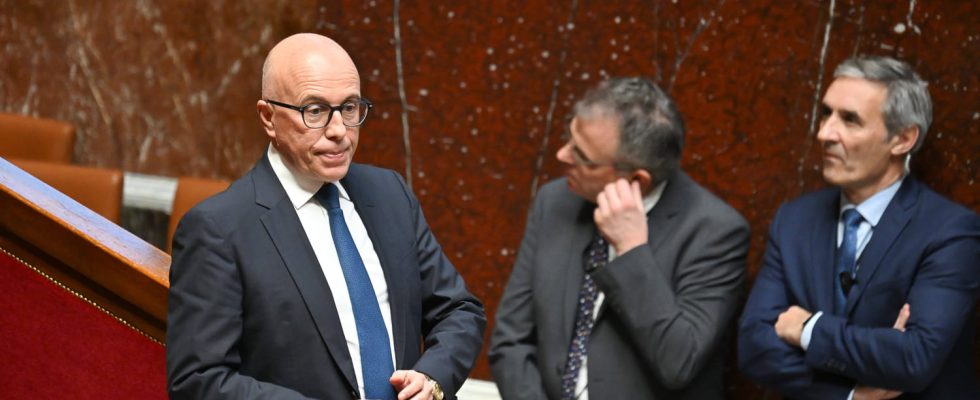A few days after the rejection motion voted by the deputies, the Prime Minister is trying to find a compromise between her majority and the right to pass the immigration law. What are the different scenarios to consider?
The government chose to urgently convene a joint committee (CMP) after the rejection of the immigration bill by the National Assembly on Monday, December 11. The commission, made up of seven deputies and seven senators, meets Monday, December 18, at 5 p.m., with one objective: to find a compromise on the bill with the version of the text hardened and adopted by the Senate as a working basis.
The stakes are high for the Prime Minister who is trying to obtain concessions from the right but who must also let go of the ballast, faced with the LR determined to pass certain measures, without running the risk of losing the support of the left wing of the majority. In Matignon, Elisabeth Borne received Eric Ciotti, Bruno Retailleau and Olivier Marleix several times between December 13 and 14 and a final meeting is already planned for Sunday evening, on the eve of the joint joint commission according to Le Figaro. Several options are to be expected at the end of the CMP and a few days before the meeting, nothing seems certain in advance.
What happens if no agreement is reached?
The first hypothesis to consider is the impossibility of finding a consensus between senators and deputies, majority and opposition. Without an agreement, the immigration bill could simply be abandoned. Emmanuel Macron also indicated to his government during the Council of Ministers on December 12 that he wanted to abandon the text for lack of consensus, despite the failure that this would represent for the majority after a year and a half of work on this flagship text of the five-year term.
Note that in the event of deep disagreement during the CMP, the government has a second option: it can request a return of the text to the National Assembly and the Senate, although this scenario does not seem to be envisaged for the moment. When the commission does not find a compromise, article 45 of the Constitution authorizes the government to reestablish the parliamentary shuttle, or to resume the back and forth of the text between the two chambers, without guarantee, however, that the deputies and senators manage to agree on a text.
What if a deal is reached?
Emmanuel Macron said he was in favor of an “intelligent compromise” on the immigration bill from Brussels on December 15, and is pushing his Prime Minister, his ministers and his majority to work in this direction. Its goal ? Pass the law without the use of 49.3. However, an agreement seems difficult to negotiate with the right, which is taking advantage of its position of strength to make the text harsher and more right-wing than its initial version. A difficult agreement but not impossible to find according to Interior Minister Gérald Darmanin. If an agreement is actually reached with the Republicans and voted with at least 8 votes out of 14 in CMP, then the immigration bill will return to the National Assembly where it should be put to the vote to be, perhaps, adopted at the majority. The discussions initiated by the Prime Minister with the leaders of the right over the past few days seem to give credence to this option.
Partial agreement also possible
A final scenario is emerging: that of an agreement at the end of the CMP, but excluding certain points from the bill. The right, which is pushing for the text to be adopted and for the bill to be included on the agenda in January 2024, has already proposed to make a concession on the abolition of state medical aid (AME) . The right would consider withdrawing the removal of the AME from the bill, provided that the subject is the subject of another dedicated text in the near future. An agreement on only part of the text is a hypothesis to take into account, because finding “a CMP text which suits the left wing of Renaissance, the MoDem, LIOT [Libertés, indépendants, outre-mer et territoires]without offending the Macronist right wing, without forgetting LR and the anti-Macronist LR subgroup”, promises to be almost impossible according to the leader of the centrist group in the Senate, Hervé Marseille.
The form and content of a possible agreement will depend on both the right and the left wing of the majority. Except that the presidential camp is no longer in a “position of strength” as noted by the president of the CMP and Renaissance deputy from the left wing, Sacha Houlié. It is therefore not certain that the majority deputies in favor of a less firm text will succeed in imposing their point of view on the right.
